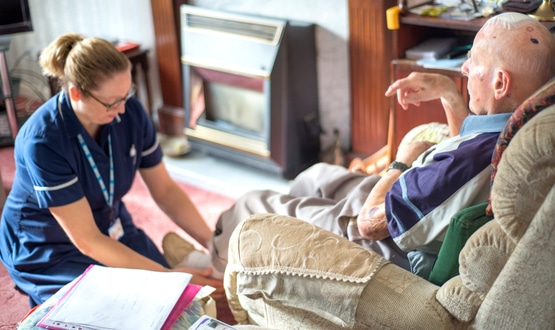Inhealthcare is collaborating on a data-sharing project which will see community providers alerted when their patients are admitted to hospital.
The company is working with City Health Care Partnership, Humber and North Yorkshire Integrated Care Board and the Yorkshire and Humber Care Record, for the new approach which will deliver better and more joined-up care.
By improving the flow of data between different parts of the health and care system, it can prevent patients from falling through the cracks. The service will alert community nurses if elderly and frail patients under their care are admitted to, discharged from or transferred between hospitals.
Expanding the use of digital echnology to help prevent falls and better support frail patients in their homes is central to the Government’s new Urgent and Emergency Care Plan.
Bryn Sage, chief executive of Inhealthcare, said: “This is the first project of its type across Yorkshire and the Humber and it has the potential to dramatically improve outcomes for patients, by making health information accessible at the right place, at the right time, so clinicians can provide more timely care.”
Inhealthcare has developed a subscription service within the Yorkshire and Humber Care Record (YHCR) which will automatically alert City Health Care Partnership (CHCP) if a patient’s hospital status is changed.
Without the service, community nursing teams would not know when their patients are admitted or discharged from hospital, and so there can be a delay in adjusting healthcare needs. This could lead to a rise in the risk of readmission and a poor health outcome
Dr Dan Harman, frailty lead at Hull-based CHCP, said: “With this new subscription service, the opposite happens. Community care providers are alerted at the point the patient is admitted; they would know which hospital site and which ward; they would be able to stand down their service until they know the patient is discharged and they could resume care for the patient at home. Data is flowing back and forth throughout the system.”
Lee Rickles, programme director at the YHCR, added: “This is about making sure that clinicians are fully informed and able to be there when our patients need them. The project also has the potential to increase capacity by reducing the number of unnecessary home visits when a patient is in hospital.”
Initially, the service is to be piloted with patients who are under the care of CHCP’s frailty team. In time, it is hoped it will be rolled out more widely to other frontline teams.
Last March Inhealthcare won an NHS contract to support the scaling up and mainstreaming of remote monitoring services across Scotland.

